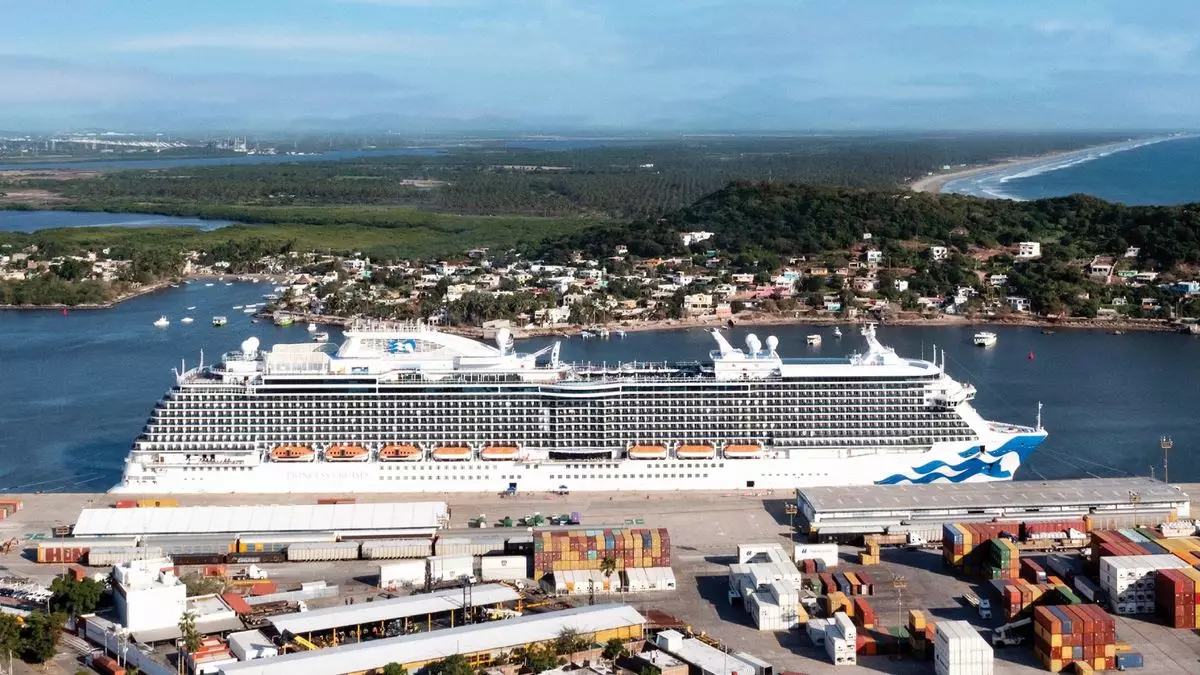In a decision that has stirred significant controversy, Mexico is set to implement a $42 tax on cruise passengers starting July 1, following a recent postponement from its original January 1 launch date. This announcement has been met with uncertainty and concern from the cruise industry, particularly highlighted by remarks from Carnival Corp. CEO Josh Weinstein during the company’s Q4 earnings call. The cruise sector, still recovering from the impacts of the pandemic, sees this tax as a potential threat to its viability in one of the most popular tourist destinations.
Weinstein’s statements reflect a broader sentiment within the cruise industry, which argues that the government did not adequately consult stakeholders before making such a significant decision. The lack of industry input prior to the tax’s approval raises questions about the government’s approach to policymaking in this sector. Weinstein emphasized the importance of fostering a constructive dialogue with Mexican officials to illustrate the substantial economic and tourism benefits that cruise lines bring to the country.
Moreover, he pointed out an interesting dynamic: the cruise industry possesses an ability to adjust its itineraries to omit Mexican ports if negotiations do not yield satisfactory outcomes. This inherent leverage puts the industry in a position to advocate for more favorable treatment, potentially shifting tourist traffic elsewhere. The finance raised from this tax, largely intended to support military funding, adds another layer of complexity to the discussion, potentially affecting the industry’s public perception and relationship with the local population.
The Need for Collaboration
It is crucial for both the cruise industry and the Mexican government to establish an open line of communication. Such dialogue should focus on the mutual benefits of tourism and how these funds can be utilized effectively without jeopardizing the interests of cruise lines. As Weinstein noted, there are significant contributions from cruise operators to the Mexican economy, and these should be acknowledged and leveraged in discussions surrounding taxation and regulatory policies.
Moreover, the assertion that the tax is aimed at creating fairness between air and sea travelers does not fully address the unique dynamics associated with cruise tourism. Cruise passengers typically contribute significantly to local economies in ports of call, making blanket taxation an oversimplification of a complex economic relationship.
As discussions between Carnival and the Mexican government progress into the new year, it will be essential for both parties to find common ground. The cruise industry’s recovery hinges on its ability to navigate challenges like this taxation while fostering strong partnerships with destination countries.
The proposed $42 tax on cruise passengers is not just a financial hurdle; it represents a critical juncture for how the cruise industry interacts with regulatory bodies globally. By prioritizing collaboration and understanding, both the cruise sector and the Mexican government can potentially turn this challenge into an opportunity for enhancement and growth in tourism, benefiting all stakeholders involved.


Leave a Reply